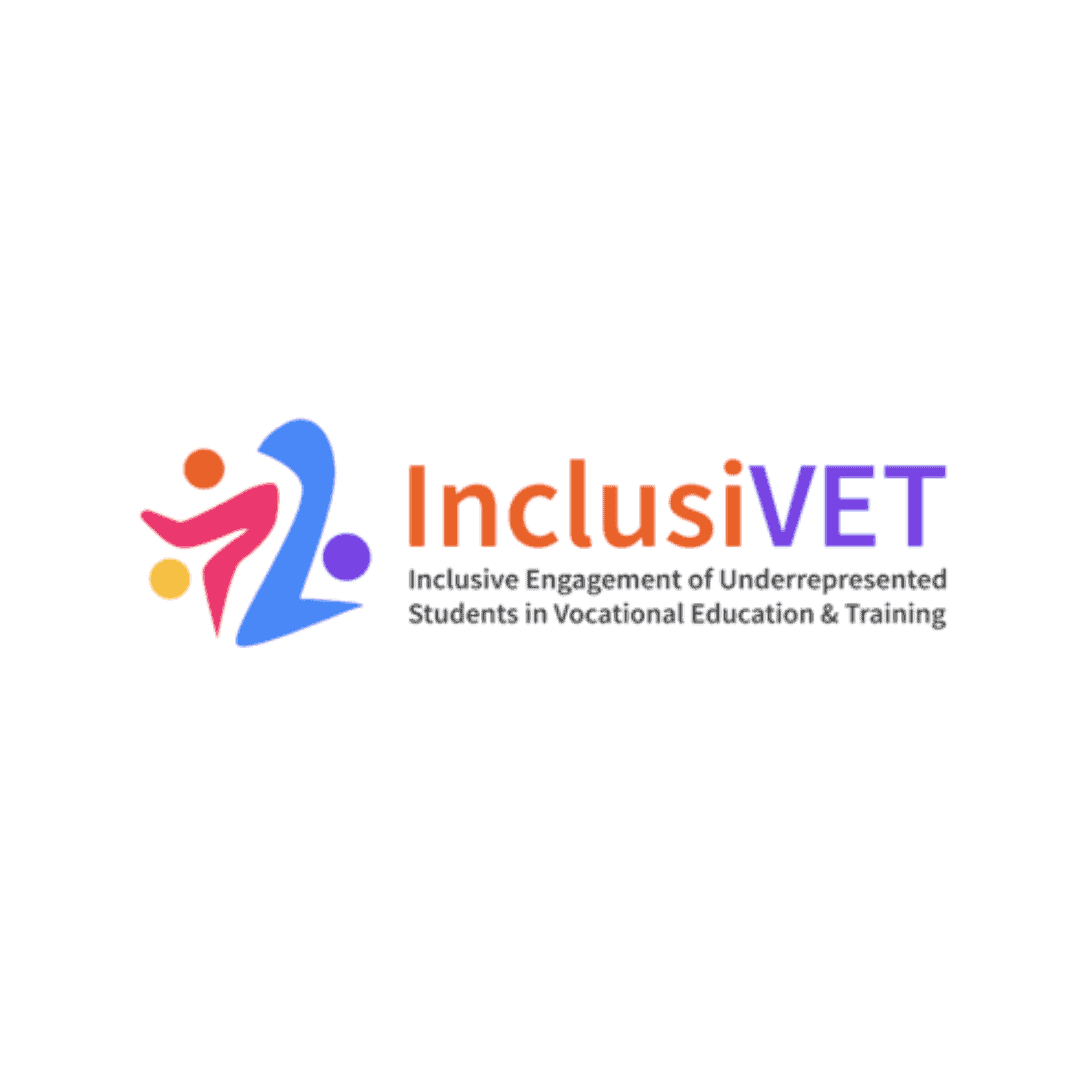
Welcome Remarks, Introduction to the Project, and Overview of the Agenda
14:30 – 14:45 | Pelin Ünlü (SEPR)
The conference started with a welcome and introduction of the theme of inclusivity in vocational education and training (VET) by Pelin Ünlü from SEPR, who provided an overview of the topics to be discussed during the conference.
Panel on Inclusive Student Engagement in VET (moderated rounds of questions)
14:45 – 15:45 | Moderator: Nik Heerens (Knowledge Innovation Centre)
The event continued with a panel discussion moderated by Nik Heerens from the Knowledge Innovation Centre. It focused on Inclusive Student Engagement in VET.
Valentina Chanina, Secretary General of EfVET, shared insights on EfVET’s mission and work, reflecting on the evolution of EU’s programmes on inclusivity, acknowledging the gaps and the work needed to be done. She described how EfVET prioritizes inclusivity through various projects.
Despite the work done, she emphasizes that there is more work to be done, especially in inclusivity in Vocational Education and Training. Chanina emphasized the importance of focusing on teachers, some of whom still lack inclusive approaches. That’s why she advocated for mentorship on inclusivity led by teachers, stressing that inclusivity should extend beyond classroom teaching to encompass the full VET experience.
Daniele Sabato, Project & Policy Officer at OBESSU, presented the mission and role of OBESSU in advocating for students in Vocational Education and Training. Sabato highlighted the organization’s commitment to amplifying student voices across Europe and discussed the student disengagement, explaining that there are alternative educational trainings that can help in this matter.
He compared the state of inclusivity in VET versus higher education, noting that VET often performs better due to its inherent diversity and different learning trainings. However, he pointed out a gap in representation within the stakeholders that shape VET policies, stressing the need for a more inclusive governance.
Monika Hoang The, Policy & Project Manager at EFEE, shared her perspective on EFEE’s research and engagement efforts aimed at strengthening VET. She highlighted the importance of initiatives like InclusiVET in addressing systemic challenges within vocational education.
She observed that while inclusion can naturally lead to greater student engagement, it does not mean that when there’s engagement there’s inclusivity. She advocated for the importance of making VET more attractive to learners through inclusive programming.

Project Presentation: Overview of Policy Recommendations
15:45 – 16:30 | Tibor Dőri (Association for Hungarian Digital Education – EfVET National Representative for Hungary)
The next panel started by a presentation of Tibor Dőri from the Association for Hungarian Digital Education, where he introduced the Inclusivet project: “The InclusiVET project aims to foster a more inclusive environment in VET institutions by increasing the engagement of underrepresented learners.”
He then shared some of the project objectives:
- Enhance understanding of current inclusive engagement practices in VET
- Identify good practices and innovative methods for inclusive engagement
- Promote participation of non-traditional and underrepresented groups in both formal and informal student engagement systems
- Develop practical strategies and tools to foster a culture of inclusive engagement
The project is a collaborative effort between multiple partners:
SEPR, Association for Hungarian Digital Education, Association of Slovene Higher Vocational Colleges, Polish Foundation of Centers for Economic Development, Knowledge Innovation Centre and OBESSU.
Project Outputs:
- Mapping Report: Examined challenges and opportunities in inclusive engagement through desk research and focus groups
- Benchmarking Framework & Self-Evaluation Tool: Provided a comprehensive view of learner engagement and levels of inclusion across institutions
- Learner-led Review Manual: Guidelines created by learners for facilitators
- Online Self-Paced Course Modules: Designed for student-support staff
The panel was followed up by Francesca Osima from OBESSU, who introduced the “Include Beyond Class” communication campaign, which was launched in the International Day of Education, the 24th of January of 2025. She shared key policy recommendations and noted that the current European policy framework is still underdeveloped, highlighting the need to align labour market goals with learners’ needs.
Lastly, Osima shared five Policy Recommendation Areas:
- Offering flexible and recognisable participation opportunities
- Increasing the visibility of diversity
- Strengthening support systems
- Training staff
- Promoting collaboration among stakeholders

Policy Round Table: Reflections & Recommendations
16:45 – 18:15 | Moderated by Panagiotis (Pete) Chatzimichail (Lifelong Learning Platform – European Civil Society for Education)
The final session of the conference featured a Policy Round Table moderated by Panagiotis (Pete) Chatzimichail from Lifelong Learning Platform & European Civil Society for Education. The round table was centred around reflections & recommendations to enhance inclusivity in vocational education and training.
Rubén Abarca Gómez, EU Policy & Projects Officer at EVTA, opened the panel by advocating for more democratic VET institutions, suggesting the involvements of learners in decision-making, going beyond curriculum development. He also stressed the need ot train support staff to stay up to date on inclusivity practices.
Beatrice Biolcati Rinaldi, DG for Employment, Social Affairs and Inclusion from the European Commission, emphasized the importance of inclusivity to facilitate smoother transitions and adaptability for students.
Lastly, Hristina Petkova, DG for Education, Youth, Sport and Culture from the European Commission, supported enhancing the visibility of diversity in vocational education and training. She called for the recognition of local authorities and employers implementing inclusive practices, highlighting that this can reflect in a competitive advantage.

